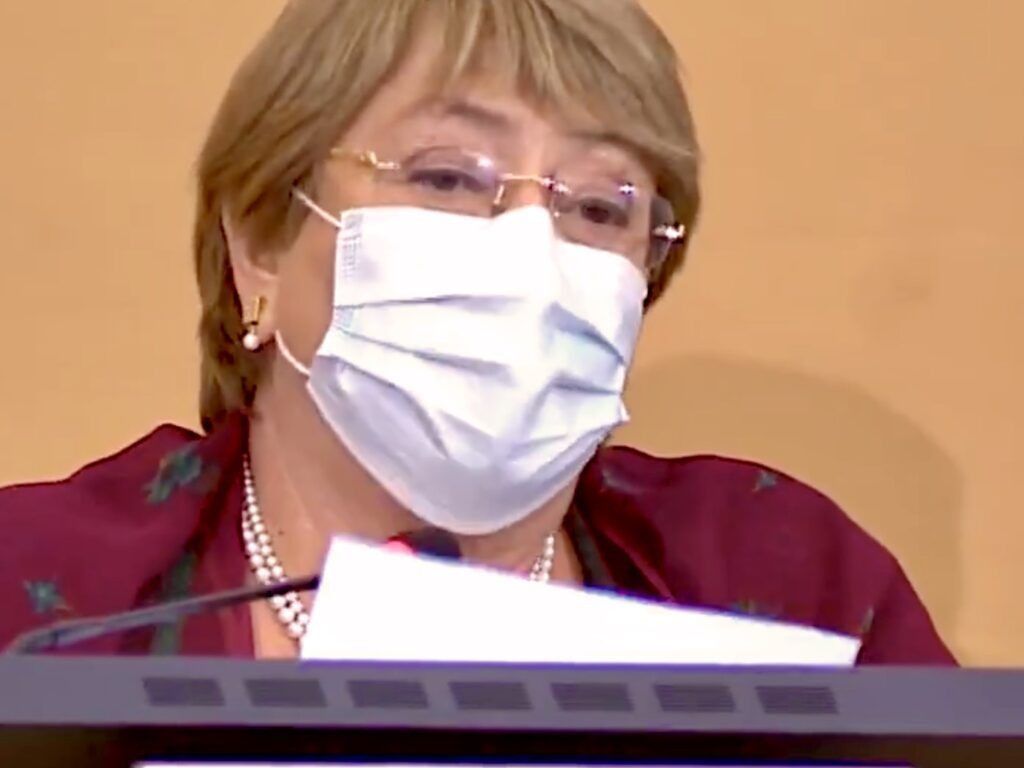GENEVA (AN) — U.N. human rights chief Michelle Bachelet denounced violence against protesters in Belarus and systemic racism in the United States on Monday, also singling out Afghanistan, the Americas, Iran, Lebanon, Palestine and the Philippines as hotspots for abuses compounded by the coronavirus pandemic.
In a global human rights update on the "sharply escalating suffering and turmoil across the world," Bachelet, who heads the Office of the United Nations High Commissioner for Human Rights, or OHCHR, emphasized that virus-fueled violations and threats are increasing.
"With COVID-19, a fast-moving and global health crisis has collided with many slower, and more entrenched, political, social and economic crises around the world," said Bachelet, who served two terms as Chile’s first female president before taking over OHCHR in September 2018.
"Those multiple underlying fractures, which have made us more vulnerable to this virus — and create entry points for its harms — result primarily from political processes that exclude people's voices, as well as gaps in human rights protection," she said in a speech at the opening of the U.N. Human Rights Council's three-week regular fall session.
From Belarus, Bachelet said, her office continues to receive "alarming reports of the ongoing violent repression of peaceful demonstrations by hundreds of thousands of people from every walk of life, notably women." A day earlier, more than 100,000 demonstrators called for Belarusian President Alexander Lukashenko to resign as they marched through Minsk in the sixth week of national protests.
"Reports continue to indicate unnecessary or excessive use of force by law enforcement officials; thousands of arrests, many of them apparently arbitrary; and hundreds of allegations of torture or ill-treatment, including against children, with some reports indicating sexual violence," said Bachelet.
"Abductions by unidentified individuals of people associated with the opposition have also been reported," she said. "Journalists reporting on the protests also continue to be targeted for arrests and harassment. There has been limited evidence of any steps by the authorities to address these reports."
Bachelet pointed to the U.S. killings of two Black men — the police shooting of Jacob Blake in August at Kenosha, Wisconsin, and the asphyxiation death of Daniel Prude while in police custody in March at Rochester, New York — as yet more examples of "the need for urgent and profound action to combat systemic racism and racial discrimination in policing and across society" in the United States.
"The absence of accountability for many prior killings underscores the gravity of this crisis," she said.
Wide-ranging abuses
In Afghanistan, there have been 3,500 civilian casualties already this year, and continuing attacks on health care facilities and personnel, according to the U.N. human rights office. The situation is "severely exacerbated by COVID-19," Bachelet said in urging the intra-Afghan peace talks to call for an immediate humanitarian pause in the fighting and an end to attacks on human rights defenders.
The pandemic's devastation in the Americas has, as with other regions, exposed profound development inequalities. "Coupled with often fragile democratic systems, it may also be a warning of potentially high risks of social unrest," said Bachelet. "The only way to build a sustainable recovery will be to address the root causes of inequalities, exclusion and discrimination."
In Iran, where human rights defenders suffer intimidation, prosecution and ill-treatment, political prisoners and prisoners of conscience have been excluded from Iran's temporary release of detainees due to the pandemic, she said, adding her concern about the prolonged hunger strike of human rights lawyer Nasrin Sotoudeh.
Lebanon's more than 55% poverty rate, almost double from last year, has been made unimaginably worse by last month's explosion of chemicals warehoused in the port of Beirut. But the "additional, heavy impacts of COVID-19, including multiple challenges in accessing basic health and education, have prompted an alarming exodus of young professionals, notably from the health sector — further draining the country of its most precious resources," Bachelet said.
Palestine's 2 million inhabitants desperately need help to deal with Israel's 13-year blockade, which has left 38% of Gazans in poverty, half of them unemployed and more than 90% of the acquifers undrinkable, according to the United Nations. "With sharply rising COVID-19 cases in Gaza, the health sector now faces total collapse, unless aspects of the blockade are lifted," Bachelet said.
And in the Philippines, where the government created an inter-agency body to examine 5,655 casualties in the war on drugs campaign, she said, the U.N. human rights office is monitoring "continued reports of drug-related killings, by both police and vigilantes, including during COVID-related restrictions on movement."









